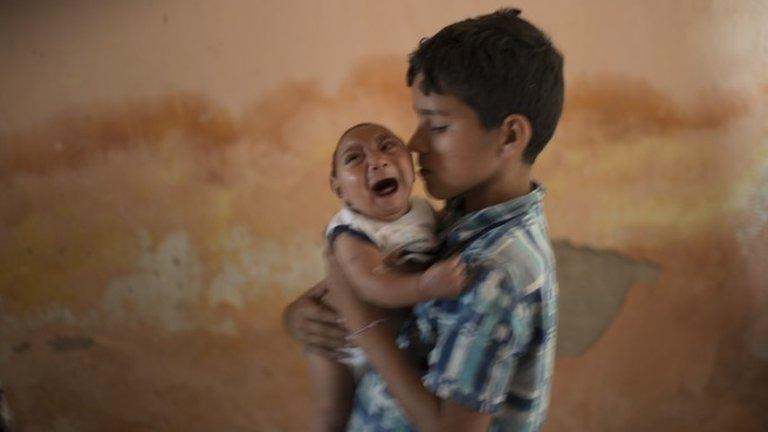Obama to request $1.8bn to fight Zika
- Published
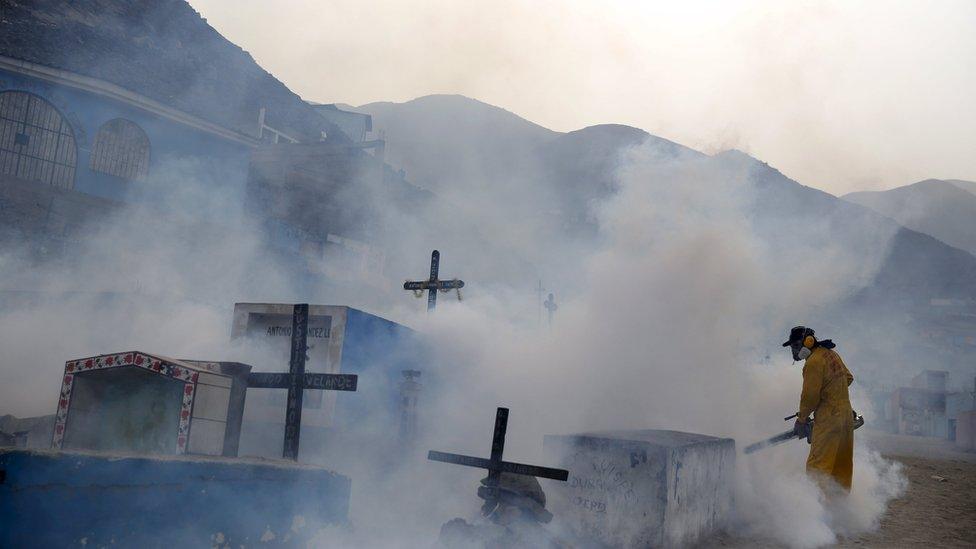
A health worker fumigates a grave yard in the outskirts of Lima, Peru
The Obama administration has said it will ask the US Congress for $1.8bn (£1.25bn) in emergency funding to combat the Zika virus.
The virus, which is transmitted primarily through mosquitoes, has spread rapidly through the Americas.
It has been linked to a condition called microcephaly, in which babies are born with underdeveloped brains.
The money will go to mosquito control efforts and vaccine research programmes among other initiatives.
The White House says that some of the money will go towards "enhancing the ability of Zika-affected countries to better combat mosquitoes and control transmission" of the virus.


The virus is currently being transmitted to new patients in 26 countries in the Americas, according to the Pan American Health Organization.
Additionally, the US Centers for Disease Control (CDC) has confirmed 50 cases of the virus in the US among people who had travelled to affected regions and returned to the US.
There is a growing fear that as warmer months approach in the northern hemisphere and mosquitoes become active, local transmission could become a problem - especially in the southern US.
Last week, the first case of locally transmitted Zika was reported in Dallas, Texas. Notably, the virus was spread in this case through sexual contact, not a mosquito bite.
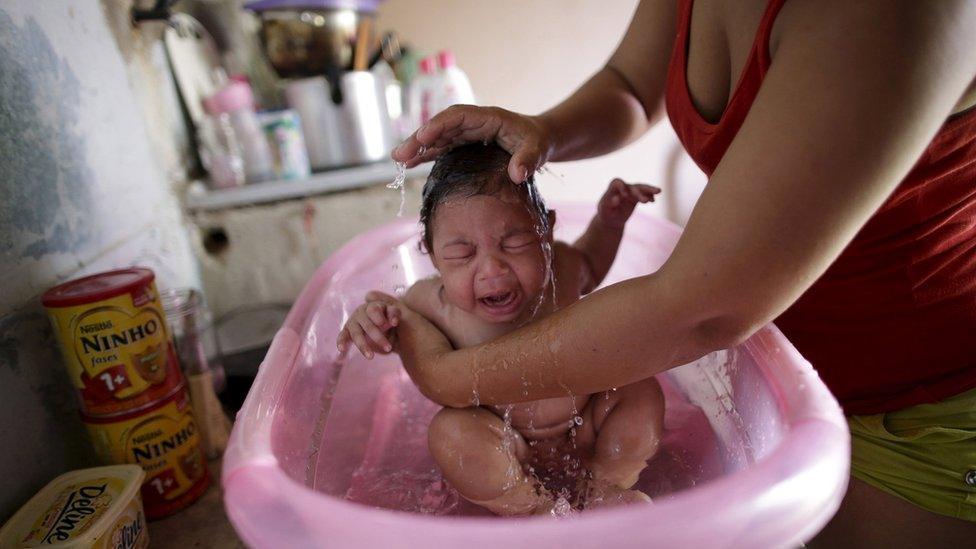
The virus is thought to be linked to microcephaly, a condition in which babies are born with smaller than normal heads
The virus has had a considerable impact in Brazil, which has seen a spike in microcephaly cases - totalling around 4,000 in recent months, stirring fears ahead of the 2016 Rio Olympics.
The World Health Organization declared an emergency over the cases last week, prompting research and aid to be fast-tracked.
The Reuters news agency reported that the US Olympic Committee has told its athletes and staff who are concerned about the virus to consider skipping the games.
However, the virus did not keep revellers home from Carnival in Rio de Janeiro over the weekend - some 70,000 fans were said to have been in attendance.
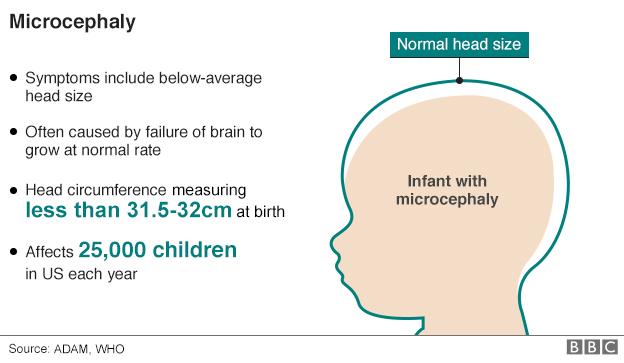

Still, fears remain on the international stage.
Across the Atlantic, the European Medicines Agency - Europe's drugs regulator - has said it had established a task force of experts to advise drug companies which are working on vaccines and medicines against the virus.
"Early and regular interaction with the agency can significantly speed up the development of medicines," the group said in a statement.
- Published5 February 2016
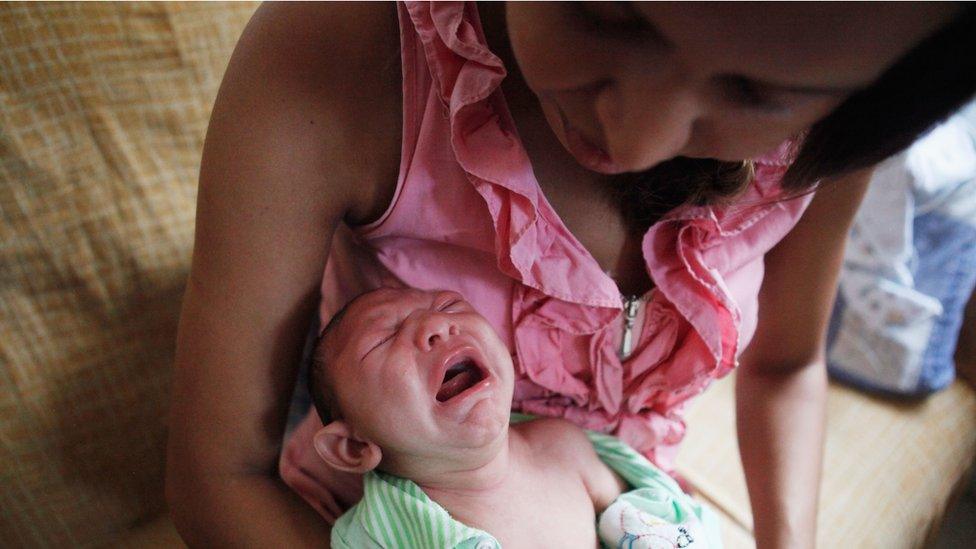
- Published24 January 2016
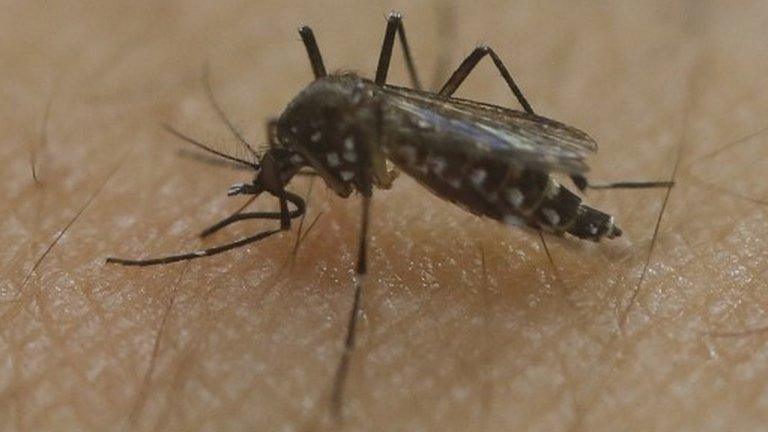
- Published21 January 2016
